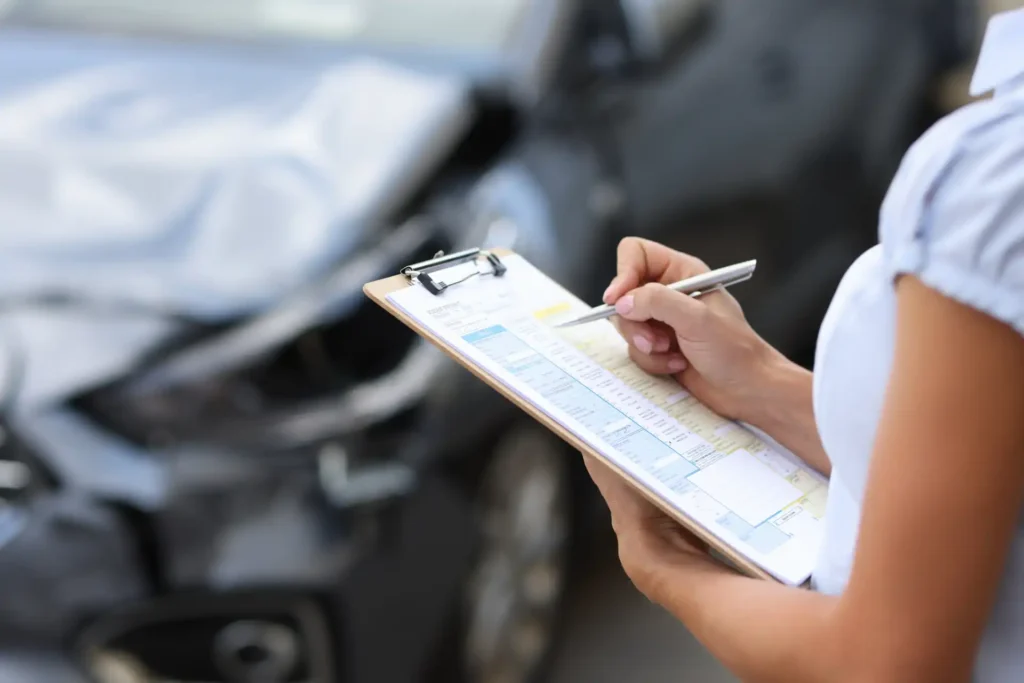Understanding Uber accident insurance can be difficult, even if you know about regular car insurance. There are many factors involved, such as different parties, changing policies, and new rules, that can confuse drivers, passengers, and others involved. When it comes to getting compensation after a rideshare accident, every little detail matters—one wrong move could mean losing out on your claim.
This “Top Mistakes to Avoid When Dealing with Uber Insurance” is more than just a list of common errors. It’s your guide to understanding how to protect your rights and get the most out of your claim. If you’re in an Uber accident, avoiding these mistakes can help you keep important evidence intact, receive proper medical treatment, and stop insurance companies from taking advantage of you.
In this article, we’ll go over the most common mistakes people make when dealing with Uber insurance during rideshare accident claims. We’ll also provide clear advice on how to avoid making the same errors.
Understanding Uber Insurance Coverage
Uber classifies its drivers as independent contractors, not employees. This distinction affects how insurance applies in the event of an accident and can limit Uber’s direct liability in many cases. The specifics of Uber insurance coverage depend entirely on the driver’s status at the time of the incident.
Coverage changes depending on the phase:
- Driver offline: When a driver is not logged into the Uber app, only their personal auto insurance applies. Uber provides no coverage during this period.
- App on, waiting for a ride request: Limited liability coverage from Uber kicks in (typically $50,000 per person for bodily injury, $100,000 per accident, and $25,000 for property damage), but it only supplements the driver’s own policy if it does not apply.
- En route to pick up or transporting a passenger: This is when Uber’s highest level of coverage is active—up to $1 million in third-party liability and additional uninsured/underinsured motorist coverage.
Identifying the exact rideshare driver status during an accident directly impacts which policy applies and how much compensation might be available. Disputes over driver status are common and often delay or reduce payouts. Knowing these distinctions helps you understand potential obstacles when determining liability in Uber accidents and sets the stage for handling your claim correctly from the start.
Common Mistakes to Avoid When Dealing with Uber Insurance Claims
1. Speaking to Uber or Their Insurer Without Legal Advice
 Engaging in direct communication with Uber or its insurance company without legal representation is one of the top mistakes to avoid when dealing with Uber insurance. Insurance companies are not on your side; their primary goal is to minimize payouts and protect their bottom line. When you provide a statement—whether it’s over the phone, via email, or through a claims portal—everything you say can be scrutinized and used against your interests.
Engaging in direct communication with Uber or its insurance company without legal representation is one of the top mistakes to avoid when dealing with Uber insurance. Insurance companies are not on your side; their primary goal is to minimize payouts and protect their bottom line. When you provide a statement—whether it’s over the phone, via email, or through a claims portal—everything you say can be scrutinized and used against your interests.
Risks of Providing Statements Without a Lawyer Present:
- Insurance adjusters are trained to ask leading questions that may prompt you to downplay your injuries or accept partial blame.
- You may inadvertently agree with facts you don’t fully understand, locking yourself into a narrative that limits your compensation.
- Admitting uncertainty about details, such as how fast you were driving or whether you noticed the other driver’s behavior, can be twisted to suggest fault or cast doubt on your claim’s validity.
How Insurance Companies Use Your Words Against You:
“Even a simple apology or an offhand comment about feeling ‘okay’ after the crash can be documented and later cited as evidence that your injuries are minor or unrelated.”
- Adjusters often record conversations and comb through transcripts for statements they can use to reduce liability.
- Quick settlements are frequently offered before the full extent of injuries is known, pressuring you to sign away rights in exchange for a lower payout.
Legal advice in rideshare claims offers protection against these tactics. An attorney will handle communications, ensure all documentation is thorough, and negotiate aggressively so that nothing you say undermines your position. Relying on professional guidance during Uber claim negotiation removes unnecessary risk and keeps the focus where it should be—on maximizing your recovery, not protecting the insurer’s interests.
2. Failing to Identify the Driver’s Rideshare Status at the Time of Accident
Understanding the rideshare driver’s status at the exact moment of an accident is a critical step in avoiding common mistakes with Uber insurance claims. Uber’s insurance coverage changes depending on whether the driver is:
- Offline (app is off)
- Available (app is on, waiting for a ride request)
- En route or transporting a passenger (trip accepted, passenger in vehicle)
To verify status, check Uber trip details using app screenshots, ride receipts, or by requesting electronic trip logs from Uber. This evidence clarifies whether the driver was logged into the app and whether there was an active fare. The correct identification of status determines which policy—personal auto insurance or Uber’s $1 million commercial coverage—applies to your claim.
Miss this detail and you risk delays, reduced compensation, or outright denial as insurance company tactics often hinge on ambiguous liability determination. Always document rideshare activity precisely for effective Uber claim negotiation and legal advice on rideshare claims.
3. Delaying Medical Treatment or Underreporting Injuries
Ignoring injuries or postponing a visit to the doctor after an Uber accident is one of the most common mistakes in Uber insurance claims. Insurance companies often use gaps in medical care to argue that your injuries are less severe or unrelated to the incident. Seeking prompt medical attention not only protects your health but also creates an official record that supports your personal injury claim.
Key steps to take after an Uber accident:
- Get evaluated by a medical professional immediately, even for seemingly minor symptoms.
- Follow all prescribed treatments and attend follow-up appointments.
- Keep detailed records of diagnoses, prescriptions, and any changes in your condition.
Medical documentation becomes vital during Uber claim negotiation and can shut down disputes over injury severity. Clear, timely records make it difficult for an insurer to minimize your compensation or question the legitimacy of your injuries—protecting both your recovery and your legal position.
4. Not Preserving Crucial Evidence from the Accident Scene
Failing to secure critical evidence at the accident scene is one of the most common mistakes in Uber insurance claims. Insurance company tactics often hinge on gaps or inconsistencies in evidence, making your diligence essential for a strong case.
Key evidence to collect includes:
- Photos of all vehicles involved, capturing damage from multiple angles
- Images of skid marks, debris, and relevant street signs or traffic signals
- Close-ups of visible injuries sustained by any party
- Screenshots from the Uber app showing trip details, ride status, and driver information
- Contact information and statements from witnesses who saw the rideshare crash unfold
Each piece of documentation can serve as crucial leverage during Uber claim negotiation. Preserving this information immediately helps counter attempts by insurers to dispute your version of events. These details are often decisive when seeking legal advice for rideshare claims and navigating the top mistakes to avoid when dealing with Uber insurance.
5. Assuming Uber Will Automatically Cover Medical Bills and Expenses
Assuming your medical bills from a rideshare accident will be automatically covered by Uber’s insurance is one of the most common mistakes in Uber insurance claims. The Uber insurance process is not designed for quick payouts or seamless coverage. There are multiple hurdles and compensation challenges that can delay or even deny payment.
Here are some key reasons why you shouldn’t assume automatic coverage:
- Coverage isn’t automatic: Payment depends on the driver’s status, policy limits, and if other insurers—like your health or auto insurer—have primary responsibility.
- Proactive follow-up is critical: Without persistent communication, it’s easy for claims to stall. Insurance company tactics often include slow responses or requests for additional documentation, which can frustrate your efforts to get bills paid.
- Legal advice in rideshare claims matters: An experienced lawyer can cut through these delays, clarify responsibilities, and help with Uber claim negotiation to ensure that you receive the compensation you deserve.
Don’t expect the process to be straightforward. Navigating these obstacles requires vigilance and professional support at every step.
6. Admitting Fault or Apologizing at the Accident Scene
Admitting fault or apologizing after a rideshare accident is one of the most common mistakes in Uber insurance claims. Even a simple “I’m sorry” can be misinterpreted by insurance adjusters as an admission of liability, potentially damaging your position during Uber claim negotiation. Insurance companies often review every statement made at the scene, looking for any language that could shift blame onto you.
Stick to these accident scene best practices:
- Never admit fault or apologize, even if you feel pressured.
- Limit your comments to factual information required by police or first responders.
- Avoid discussing specifics of the accident with other drivers, passengers, or witnesses.
Rideshare accident protocol recommends stating only what you directly observed—describe events without attaching blame. This protects your rights and ensures legal advice for rideshare claims can be utilized effectively later in the process. Fault admission consequences can complicate coverage decisions and limit your compensation, making it essential to focus on facts rather than feelings when dealing with post-crash communication.
7. Incomplete Information Gathering After an Accident
Missing critical details at the scene is one of the top mistakes to avoid when dealing with Uber insurance claims. Insurance companies often use gaps or inconsistencies in your accident report to their advantage. You can strengthen your legal advice for rideshare claims and Uber claim negotiations by being thorough.
Accident Information Checklist:
- Driver and Vehicle Details: Record full names, phone numbers, driver’s license info, vehicle make/model, license plate numbers, and insurance details for all involved vehicles.
- Witness Contacts Rideshare Crash: Gather names and contact information for any witnesses present. Independent witness statements can be crucial during claim disputes.
- Scene Documentation: Take photos of vehicle positions, damages, street signs, weather conditions, visible injuries, and relevant road markings.
- Driver Insurance Details: Confirm both personal and Uber-provided insurance policy numbers.
Thorough information gathering supports your case and ensures a smoother process when filing your claim. Missed details often lead to delays or denied compensation—something you want to avoid during Uber claim negotiation.
Why Consulting a Personal Injury Lawyer Specialized in Rideshare Accidents is Crucial
Handling an Uber insurance claim involves unique legal challenges that can quickly overwhelm anyone unfamiliar with the process. Rideshare injury lawyer benefits go beyond basic legal advice—they provide strategic guidance through the maze of shifting liability and coverage rules specific to Uber accidents.
1. Complex Liability Issues
 Uber’s status structure means responsibility can shift between the rideshare company, the driver’s personal insurer, or even third parties. Decoding which policy applies and ensuring each party is held accountable requires specialized knowledge. A lawyer experienced in rideshare claims knows how to pinpoint coverage gaps and prevent insurers from dodging responsibility.
Uber’s status structure means responsibility can shift between the rideshare company, the driver’s personal insurer, or even third parties. Decoding which policy applies and ensuring each party is held accountable requires specialized knowledge. A lawyer experienced in rideshare claims knows how to pinpoint coverage gaps and prevent insurers from dodging responsibility.
2. Negotiating Fair Compensation
Insurance adjusters are trained to minimize payouts on medical bills, property damage, lost wages, and pain & suffering. A seasoned attorney steps in as your negotiator, pushing for a settlement that reflects your actual losses—not what the insurer wants to pay. With Uber accident legal help, you avoid lowball offers and common negotiation traps.
3. Time-Sensitive Legal Filing
Each state has strict time limits—statutes of limitations—for filing accident-related lawsuits. Miss these deadlines and your right to compensation disappears. A dedicated lawyer keeps your case on track, ensuring all paperwork is filed accurately and on time.
Expert guidance removes the guesswork from dealing with complex Uber claims, allowing you to focus on recovery while your lawyer manages deadlines, negotiations, and legal filings.
Conclusion
Mistakes during an Uber insurance claim can be costly. Each misstep—from failing to document rideshare status to trusting the insurer without legal counsel—can reduce your compensation and delay recovery. Understanding the Top Mistakes to Avoid When Dealing with Uber Insurance puts you in a better position to protect your rights and optimize your results.
Prompt action maximizes rideshare claim success. Delays in seeking medical treatment, gathering evidence, or consulting a specialized attorney often lead to disputes and lower settlements. Rideshare insurance policies are complex, with shifting coverage and strict timelines. You deserve support that matches the challenge.
If you want to avoid Uber insurance mistakes summary pitfalls and secure the compensation you’re entitled to, reach out today.
Contact us for a free consultation. Our experienced team is ready to guide you through every step of your Uber insurance claim—so you don’t have to face these challenges alone. Protect your rights, focus on your recovery, and let us handle the rest.

